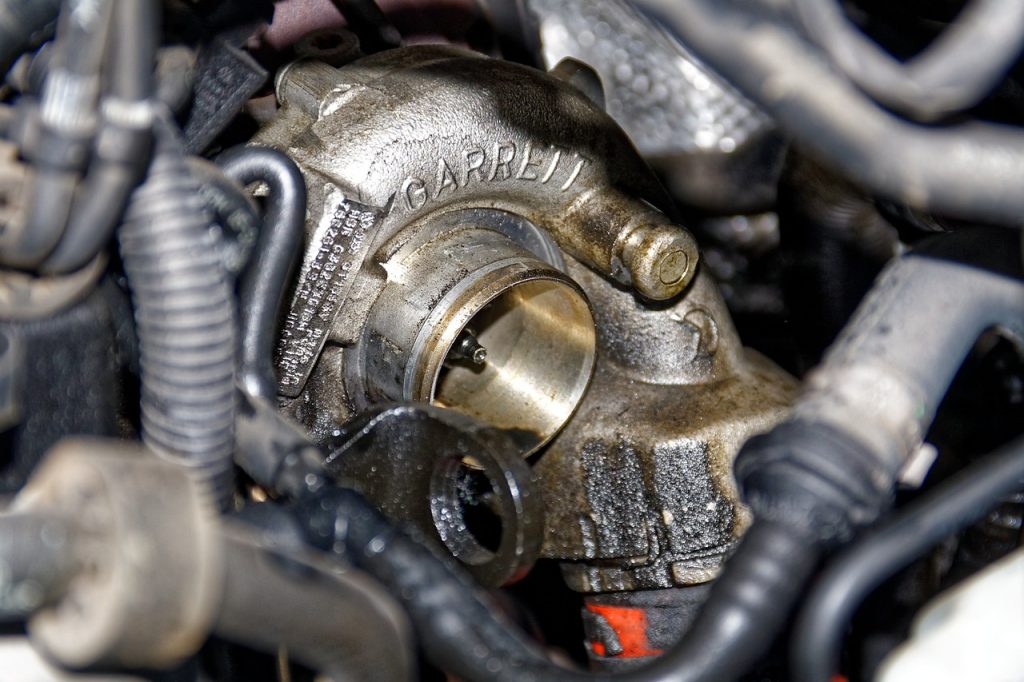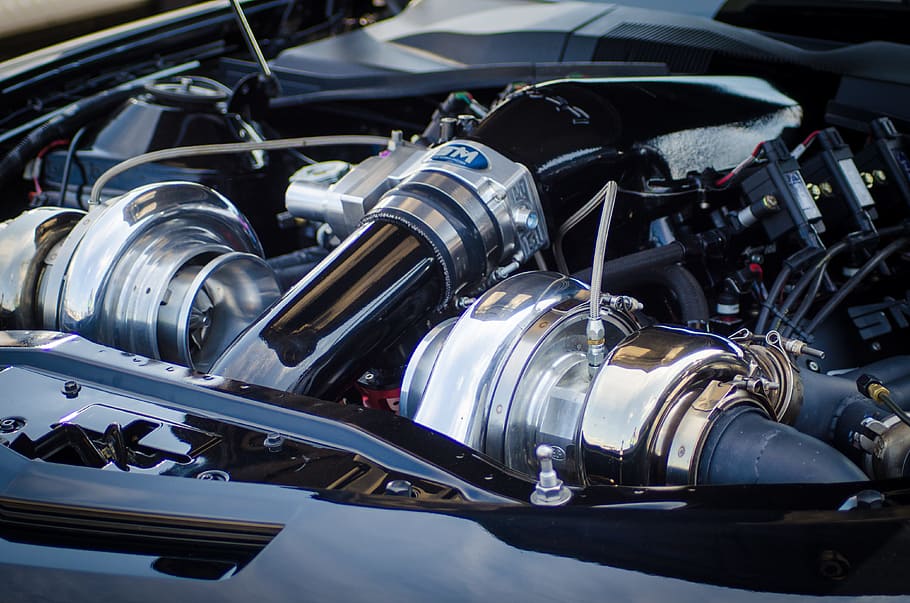Summary
The principle of the turbo: explanations
Oil leak at the turbo: what are the symptoms?
Turbo: causes of oil leaks and what to do about them
Turbo maintenance
An oil leak from the turbo can cause considerable damage. In order to prevent your vehicle from breaking down, it is essential to know how to detect the source of the problem so that you can find the right solution for each case.
The principle of the turbo: explanations
The turbo is a mechanical component for combustion engines and internal combustion engines. It improves the volumetric power of the engine. The principle of the turbo consists in operating a turbine by rejecting the exhaust gas. Thus, the role of the turbine is to send a certain quantity of air that will be compressed and then transmitted into the engine’s combustion chamber, which will see its power improved.
Good to know: to function properly, the turbo needs to be lubricated by the engine oil. This oil is supplied through a circuit located at the turbo bearings.
Oil leakage from the turbo: what are the symptoms?

An oil leak in the turbocharger is caused by a mechanical problem that can result in damage to the turbo compressor. A lack of oil leads to this type of fault.
The oil leak appears at the seals. It is often the result of poor filtration or failure of the air exhaust system.
Caution: If an oil leak in the turbo remains, it is best to contact a garage without delay, as the cause of the leak can be precisely detected and the necessary repairs can be carried out quickly.
Turbo: causes of oil leaks and how to deal with them
The main mechanical causes of an oil leak observed at the turbo are multiple:
Dirty compressor: it is advisable to clean the soiled parts of the compressor and then replace the air filter and the oil filter.
Leak between the engine and the turbine: it is essential to replace the defective seals.
Damaged turbo: After investigating the cause of the problem, it is essential to replace the turbo.
Turbo bearing silted or coked: the too high temperature turns the oil into coke. The oil and air filter, but also the turbo must be replaced.
Clogged air filter: if cleaning the filter is useful, it is really preferable to replace it.
Clogged oil drain channel or crankcase ventilation: it is necessary to clean the soiled part or, better still, replace it.
Blocked exhaust or intake manifold: the blockage should be removed by careful cleaning.
Note: Too high an oil temperature or too much oil in the crankcase are two situations that can cause an oil leak at the turbo.
Turbo maintenance
Maintenance is necessary to prevent oil leaks from the turbocharger. It is essential to check the condition of the turbo regularly. To do this, simply remove the intake or exhaust manifolds to check:
– the appearance of the compressor and the turbine wheels;
– the absence of metallic particles that can get into the turbo body. The turbo can indeed be damaged by a foreign body.
Important: to avoid any risk of malfunction, the turbo must be periodically checked and serviced by a specialised mechanic. One good reference in Melbourne is Jobson Electronics. Be it your turbocharger or any component, they will fix your car – be it a full car servicing, car audio repairs, electronic suspension, starter modules and components.
Note: They deal mainly with European cars.
Hope this post helps you determine the causes of oil leaks and what to do about them. Remember to leave your comments in the section below.



One thought on “Turbo Cars: How to Fix a Turbo Leak”